Photographer Adam Voorhes out of Austin, Texas, has documented a collection of approximately 90 human brains that the University of Texas had amassed over the past 30 years.
The story goes that Voorhes found the collection a few years back after meeting Dr. Tim Schallert, while searching for a way to illustrate a Scientific American article. After finding a brain that was going to work for the assignment, Dr. Schallert asked if Voorhes wanted to see more abnormal brains.
“Some of them are huge, some of them are really tiny. There was one that had no wrinkles at all,” he told Co.Exist's Stan Alcorn “I don’t even know how to explain it.” He became interested in documenting the collection and after agreeing on the details, Voorhes spent a weekend setting up a studio in the brain lab and created 230 photographs over a two day weekend.
The collection of human brains has been growing for over 30 years by a medical pathologist from the Austin State Hospital, who after routine autopsies, preserved the brains for the collection. Apparently in the mid 1980's the collection was highly sought out and battled over which institution should house and study the brains.
The photographs will be published in an upcoming book in a collaboration with journalist Alex Hannaford. The brains are also being 3-D scanned and studied by freshman students the University of Texas.
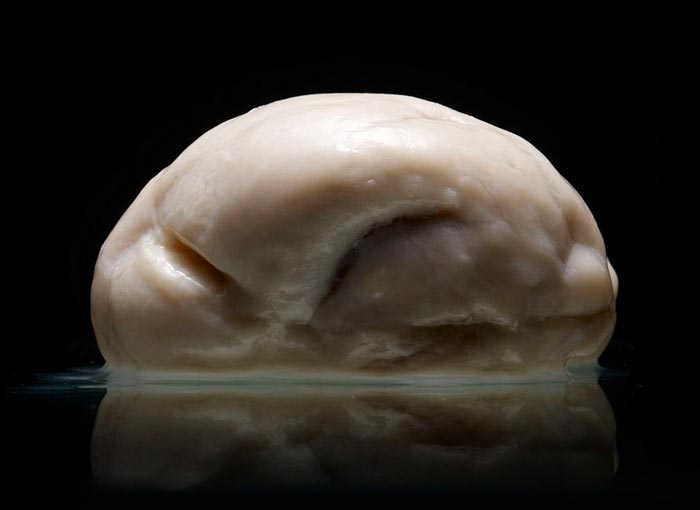
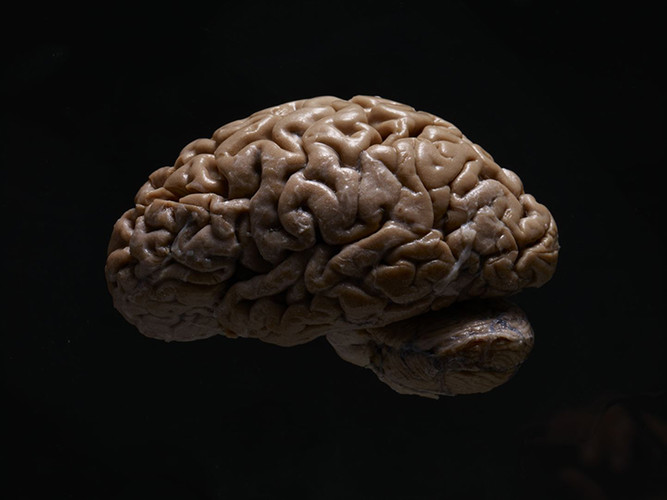
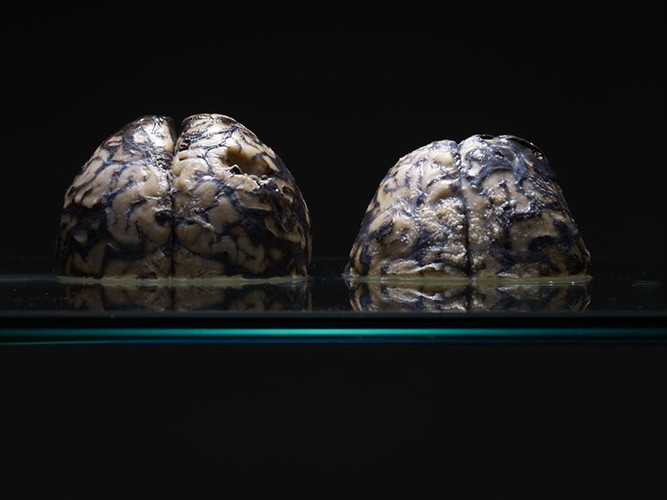
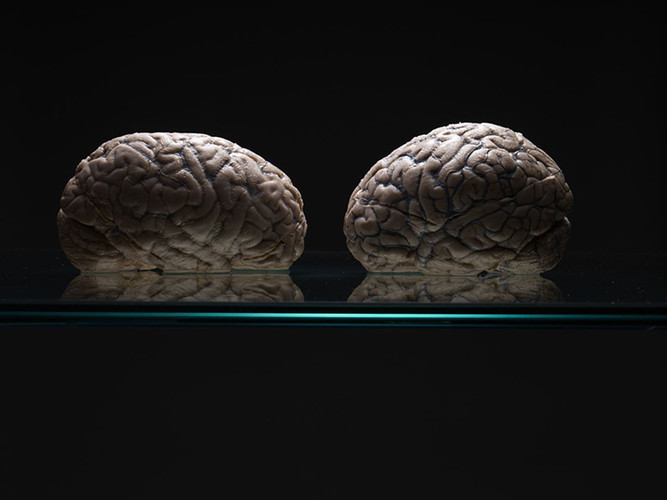
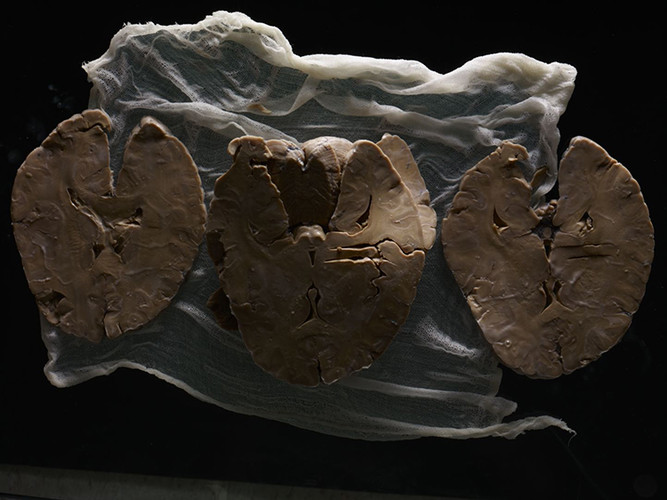
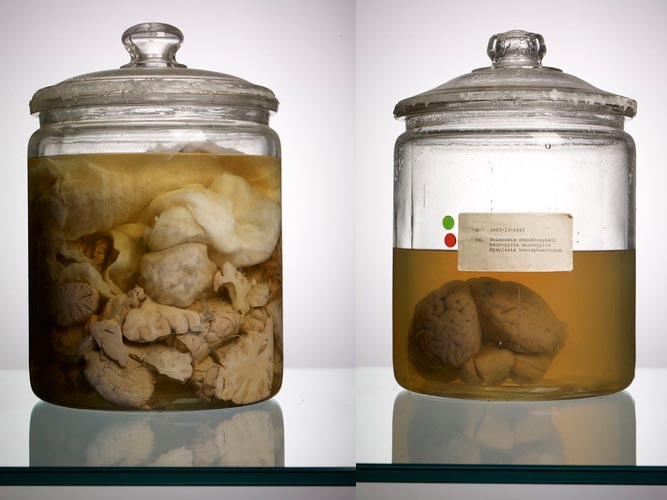
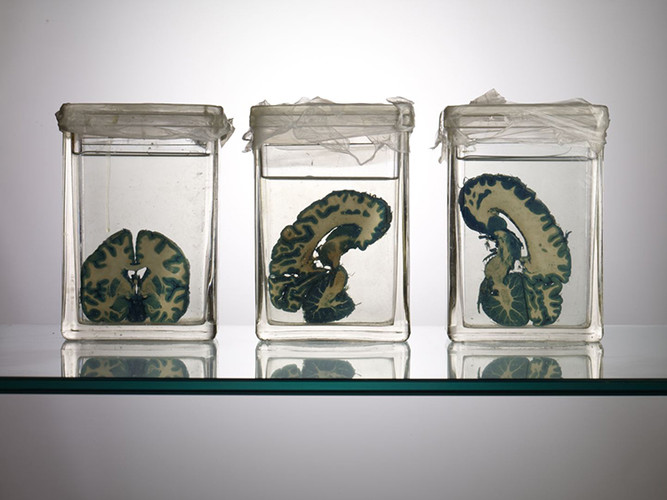
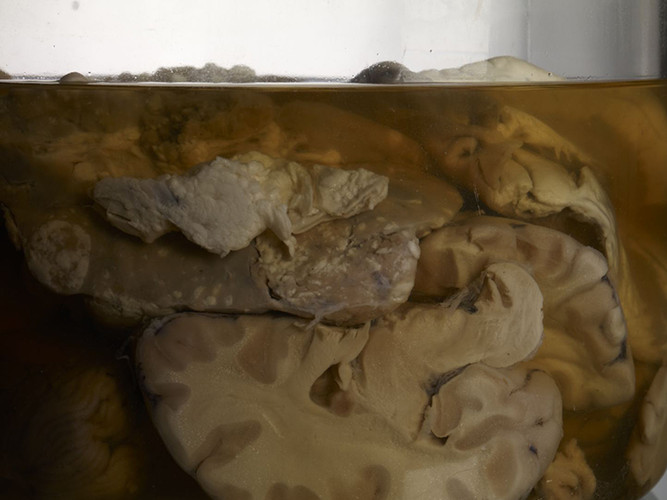
Via - Co.Exist & Stan Alcorn







Anybody hungry?
Ground beef for lunch?
Technically the brain named itself.
"In less than 2 million years, the human brain size doubled. This is without contest the greatest mystery in the whole of evolutionary theory. Lumbston (who is a brilliant evolutionary biologist) calls the doubling of the human brain size in 2 million years "the most spectacular transformation of a major organ of a higher animal in the entire fossil record". It would be spectacular enough if it were the liver of an otter or the pancreas of an elephant, but notice that it was the organ that created the theory of evolution itself, and all other theories." ~T. McKenna
These Photos are cool. I did some work in anatomical photography and you would not believe some of the problems you run into with lighting, camera angles, and lens choices.